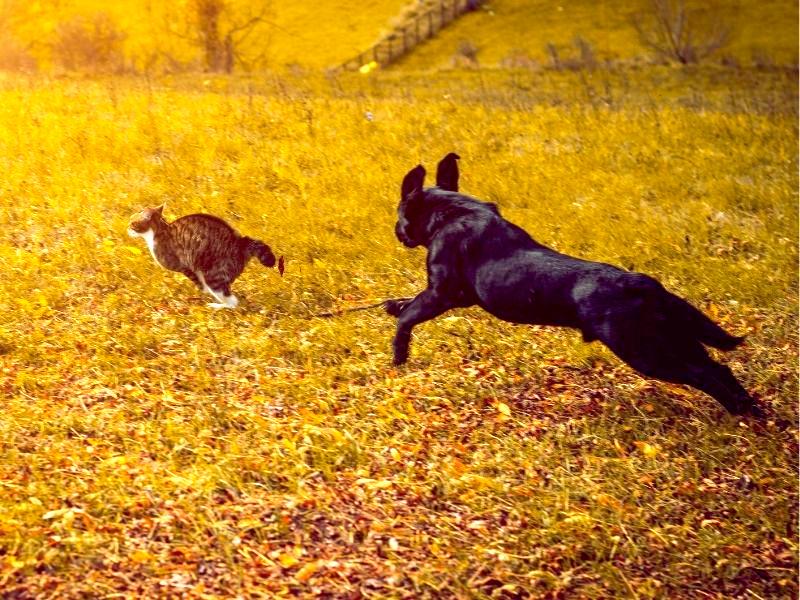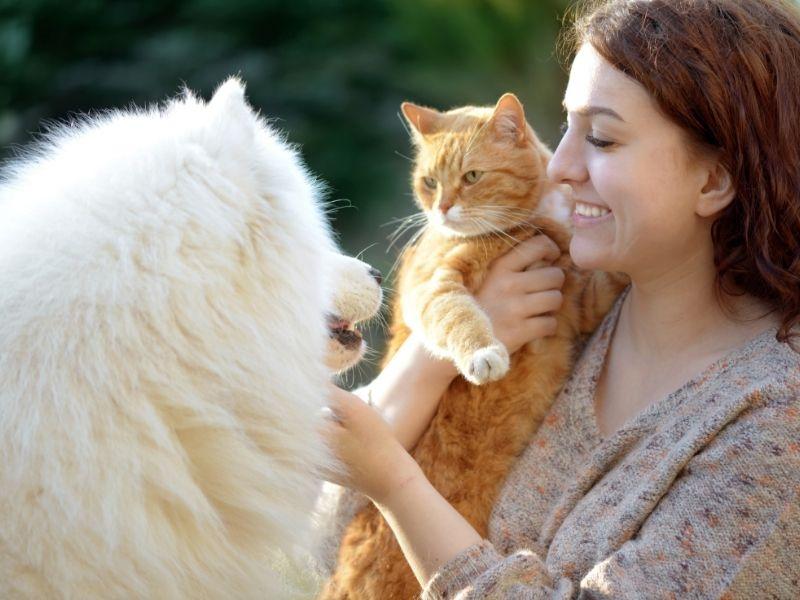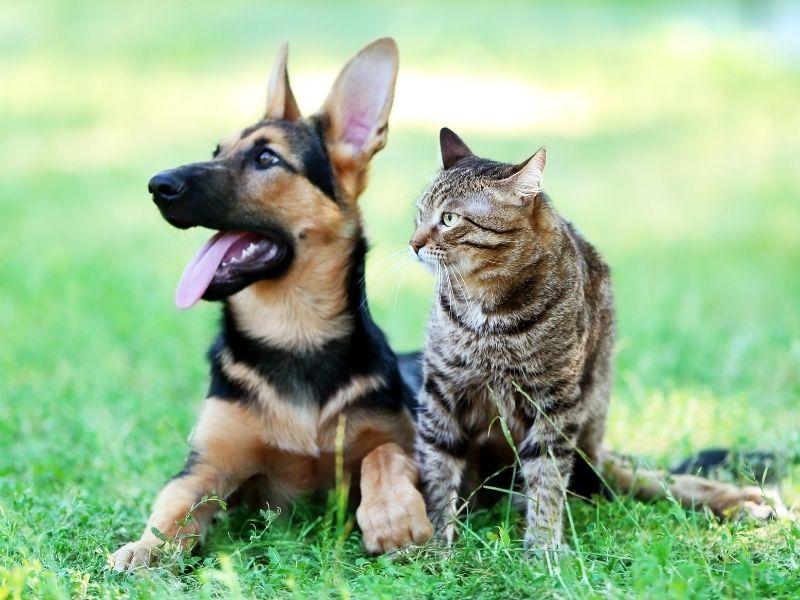Many people adopt a dog without considering whether or not that particular breed is likely to get along with cats. For example, herding dogs have a strong instinct to chase anything that moves, including cats. If you live in a rural area and your cat roams free, this could pose a serious danger to its safety. In urban areas, busy streets are also a threat to the cat’s safety. The behavior of dogs chasing cats can be a problem for many cat owners, and there are several things you can do to address it. The two are carnivores and have a natural interest in each other.
Why Do Dogs Chase Cats?
There are a number of reasons why a dog might chase a cat. Here are the most common ones:
1) Dominance
Dogs chase cats because they want to be the dominant species in the household. When two different species live together, there will always be a hierarchy. The dog may see the cat as a threat to its position and feel the need to chase it away. It may feel that it needs to protect its territory from the invader. This is common in households where the dog was there first and the cat was introduced later.
2) Prey Drive
Many dogs have a strong prey drive, which is an instinct to chase and catch animals. This is especially true of hunting and herding breeds, but any type of dog can be affected by it. The dog may see the cat as prey and feel the need to chase it. This can be a problem even if the dog has never actually caught a cat.
3) Lack of Socialization
Dogs that have not been properly socialized may see cats as something to be afraid of. They may chase them out of fear or because they don’t know how to act around them. This is often the case with dogs that are afraid of other animals in general.
4) Excitement
Some dogs chase cats simply because they find them exciting. They may see the cat as a toy to be played with or as an animal to be chased. This is usually the case with young dogs or puppies.
5) Curiosity
Dogs are curious by nature and may chase a cat simply because they want to see what it will do. This is especially true of puppies and young dogs. They may not understand that the cat is a living creature and not a toy.

Will My Dog Be Hurt If It Catches a Cat?
Yes, there is a danger that your dog could be hurt if it catches a cat. The cat may scratch or bite the dog in self-defense. In some cases, the cat may even attack the dog. This can lead to serious injuries for the dog, including puncture wounds, infections, and even death.
On the other hand, your dog may hurt the cat if it catches it. The dog may accidentally crush the cat while trying to catch it or hurt it with its teeth. Dogs have sharp claws and powerful jaws, so they can easily injure a cat. In some cases, the injuries may be fatal.
It’s important to remember that even if your dog doesn’t catch the cat, the cat can still get hurt. The constant chasing and running may be stressful for the cat and lead to medical problems down the road, including anxiety or even heart disease.
Would My Dog Kill a Cat?
It’s unlikely that your dog would kill a cat, even if it caught one. Most dogs are not capable of killing an animal, even if they wanted to. However, there is always the possibility that your dog could seriously injure or kill a cat by accident.
For example, if the dog was chasing the cat and ran into traffic, both the dog and the cat could be killed. Or, if the dog caught the cat and didn’t know how to properly hold it, it could accidentally crush it. These accidents do happen, so it’s important to be aware of the risks.

See Also: What Is the Largest Breed of Shepherd?
And: Why is it so Difficult to Adopt a Rescue Dog?
Can I Train My Dog to Stop Chasing Cats?
Yes, you can train your dog to stop chasing cats. The best way to do this is to work with a professional trainer who can help you modify your dog’s behavior. However, there are also some things you can do on your own to help discourage the behavior.
1. Use Positive Reinforcement
Whenever your dog does something you want, such as not chasing a cat, be sure to praise it and give it a treat. This will help the dog associate good things with not chasing cats and may make it more likely to do so in the future. The key is to be consistent with your praise and rewards.
2. Avoid Punishment
Punishing your dog for chasing cats is not likely to be effective and could even make the problem worse. Dogs often don’t understand why they’re being punished and may become afraid of cats as a result. This could lead to more chasing out of fear or aggression.
3. Teach Your Dog Some Cat Rules
In order to reduce the risk of your dog hurting a cat, it’s important to teach it some basic rules about cats. For example, you may want to train your dog not to chase a cat if it is in a car or on someone’s lap. You may also want to teach your dog that it’s not allowed to bother cats when they’re eating, sleeping, or hiding.
4. Give Your Dog Plenty of Exercises
Finally, you can help reduce the risk of your dog chasing cats by making sure it gets plenty of exercises every day. If your dog is tired out and worn out from running around, there will be less chance that it will want to chase a cat.
In conclusion, yes, you can train your dog to stop chasing cats. This may involve working with a professional trainer or using some basic training techniques on your own. By providing plenty of exercises and teaching your dog some rules about cats, you can help discourage this unwanted behavior and keep everyone safe.
Featured image: Dogs and Cats Can Be Friends

